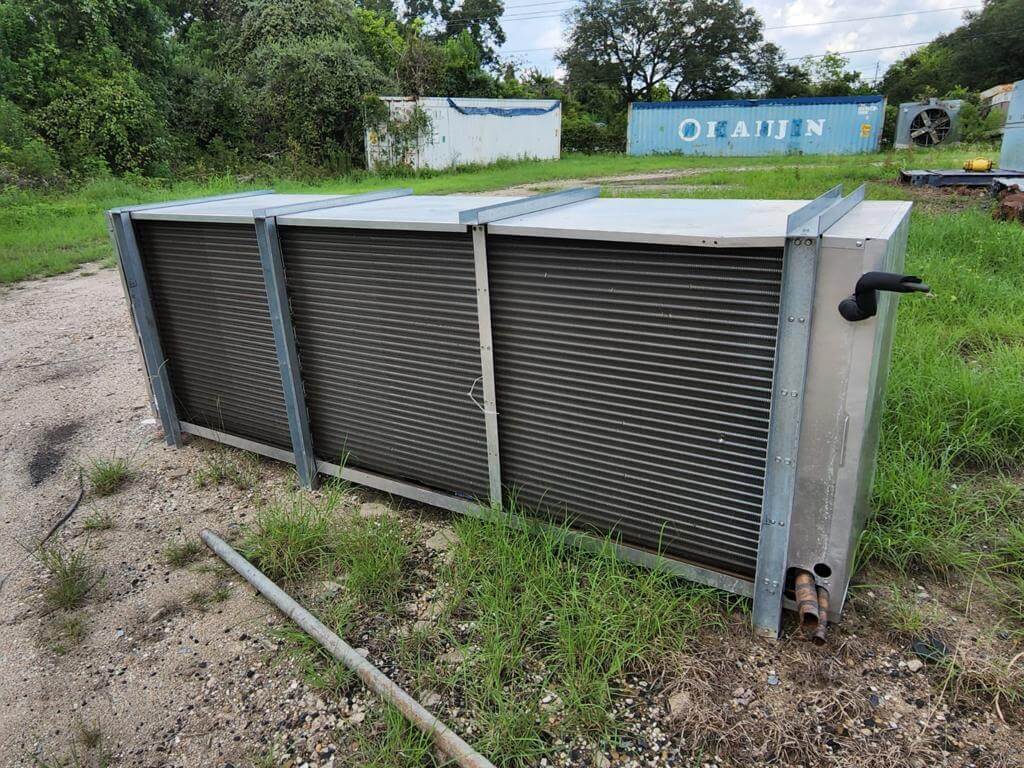
Evaporators are the heat exchangers responsible for absorbing thermal energy from a space, cooling it via refrigerant evaporation. While their core function is the same, ammonia and Freon systems differ in design and performance:
Ammonia Evaporators: Powering Large-Scale Efficiency
Pros
Cons
Best Applications
Freon Evaporators: Flexibility for Smaller Systems
Pros
Cons
Best Applications
Head-to-Head Comparison: Key Decision Factors
| Energy Efficiency | ✅ Superior in large-scale systems | ❌ Suitable for smaller loads |
| Environmental Impact | ✅ Eco-friendly (low GWP, natural refrigerant) | ❌ High GWP; phasedown underway |
| Safety | ❌ Requires rigorous safety protocols | ✅ Non-toxic at low concentrations |
| Upfront Cost | ❌ High (industrial materials, compliance costs) | ✅ Lower (simpler design, smaller scale) |
| Lifespan | ✅ 25–30+ years with proper maintenance | ✅ 15–20 years (shorter if retrofits needed) |
| Regulatory Future | ✅ Favored by global climate agreements | ❌ Phasing out older variants (e.g., R-22) |
Why Refurbished Systems Offer a Middle Ground
For buyers torn between ammonia’s efficiency and Freon’s simplicity, refurbished evaporators provide a cost-effective path:
How to Choose: Questions to Guide Your Decision
1. What’s your facility’s cooling capacity?
2. What’s your budget?
3. How do you prioritize safety?
4. Are sustainability goals a priority?
Conclusion: Match the Evaporator to Your Operational DNA
There’s no universal “best” refrigerant—only the best fit for your facility’s scale, budget, and goals. Ammonia evaporators dominate heavy industry with unmatched efficiency and sustainability, while Freon systems offer accessibility for smaller, safety-sensitive applications. With synthetic refrigerants facing phasedowns, ammonia is increasingly the forward-looking choice for industrial users.
Need Help Navigating Your Options?
At Refrigeration Equipment, we specialize in both ammonia and Freon systems, including refurbished evaporators optimized for performance and compliance. Whether you’re retrofitting an existing system or designing a new one, our experts will guide you to the right solution.
📞 Call or Text 201-805-1441 us today to schedule a consultation or request a quote. Let us help you balance efficiency, safety, and cost in your refrigeration strategy.

Refrigeration Equipment Professionals (REP) is a trusted supplier of industrial refrigeration systems and surplus/used equipment, offering compressors, chillers, condensers, evaporators, ice machines, freezers, coolers, pumps, motors, complete plants, and services like purchasing, refurbishing, shipping, export crating, and storage/consignment support. With 25+ years of experience and clients across North America, Latin America, the Middle East, and Asia, we deliver reliable, cost-effective refrigeration solutions worldwide.
